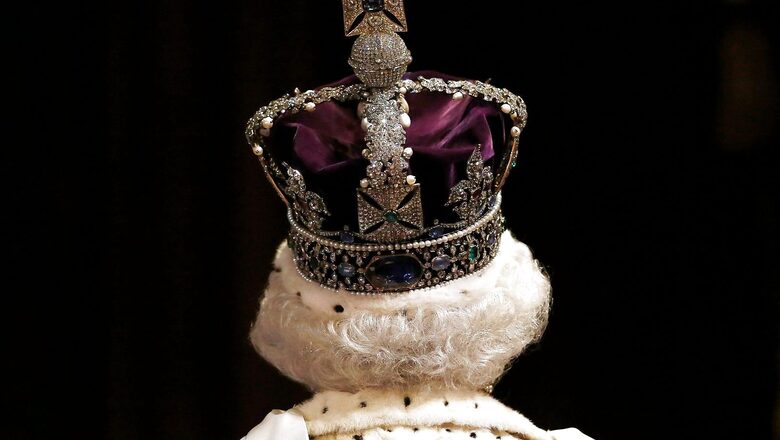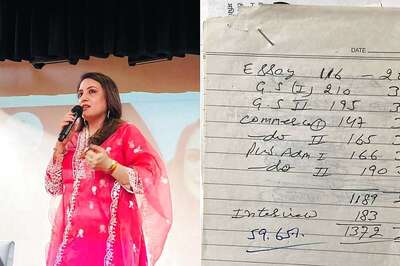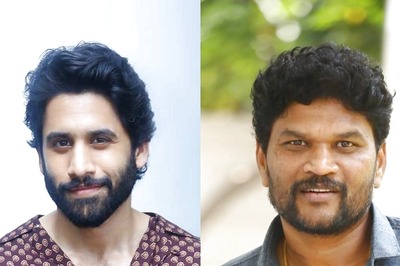Was Queen Elizabeth II Ever Completely Aware of the Atrocities Done Under Her Reign? News18 Explains

views
Queen Elizabeth II’s death prompted worldwide mourning. However, it also prompted reflections over the role of the monarchy in the violence that took place under British colonialism, especially under the reign of the late Queen. In Kenya, Britain was blamed for brutally suppressing the local Mau Mau movement and keeping, and torturing rebels in detention camps. The country had to apologise for its actions in 2013.
But how aware was the Queen (who took over the Crown in 1952) of the actions committed under her rule? While for many it may not matter – as she still represents a regime steeped in suppression of rights and freedom – others wonder. News18 explains:
How Violent Was the British Empire Under Queen Elizabeth II?
The short answer is: very.
Caroline Elkins, a Pulitzer Prize-winning professor of history at Harvard University, explained in an article for Time that When Queen Elizabeth II was crowned in 1952, she was constitutionally responsible for hundreds of millions of colonial subjects spread across 70 colonies, territories, and mandates.
According to her, the Queen took over an economy that was suffering, amid demands for independence. The nation’s postwar recovery and the status of being in the Big Three, along with the US and the Soviet Union, she said, ‘were dependent on the exploitation of colonised subjects around the world’.
And that’s why, explained Elkins, the first thirty years of Queen Elizabeth II’s reign were marred by recurring, brutal end-of-empire conflicts.
Beginning in Malaya and moving through Kenya, Cyprus, Nyasaland, Aden, and Northern Ireland, British security forces acted in the name of the Queen, unleashing widespread detention without trial and illegal deportations.
They forcibly relocated hundreds of thousands of subjects into barbed-wire villages where forced labour and starvation were forms of colonial control in Malaya and Kenya.
Kill squads were used in each conflict, and populations were terrorised. Journalists in Cyprus referred to interrogators as HMTs, or ‘Her Majesty’s Torturers’, the report said.
How Aware Was the Queen?
Successive governments during Elizabeth II’s regime denied allegations of systemic violence, claiming that any instances of brutality were isolated incidents caused by individual colonial officials, or “bad apples.”
It may so have happened that the Queen too was given those reportings by her Prime Ministers.
In an interview to Vox, Elkins says that “there is absolutely no extant documentary evidence directly linking her to knowledge of systematic violence and cover-up in the empire that I’m aware of, and I’ve been studying this for 30 years.”
Elkins also explains that there were not records kept of her weekly meetings with prime ministers. “So we don’t know what was said during those weekly meetings.”
So the Queen may have known exactly what was happening, or she may have been lied to, as well, as demonstrated by Elkins in an example: Through the diaries published by Harold Macmillan [Prime Minister from 1957 to 1963].
This was the only time there was a public reckoning over violence in Kenya’s detention camps was in 1959, when 11 detainees were beaten to death in a Kenyan detention camp, and the British government was caught and couldn’t explain it away, she said.
According to Elkins, Macmilla wrote in his diary that afterward, he spoke with the queen and explained to her that this was primarily the fault of minor officials, rather than the colonial secretary at the time, Alan Lennox-Boyd.
“So, according to his diary entry, he lied to the queen, and we know Alan Lennox-Boyd was right in the middle of it, that this was not the result of minor officials. And that Macmillan was also aware of the systematic violence and cover-up that was taking place,” she said, explaining that this, on official record, was a lie to the Queen.
But the Queen Was Still Complicit, Right?
Yes, say many. This period of skepticism in the usefulness of the monarchy may have been brought to the light by the Queen’s death, but it has been preceded by years of public reckoning, trials and demands of freedom and apology by the Crown.
It cannot be so that the Queen, who was known for her extensive knowledge on external affairs, and the advice she offered to her many Prime Ministers, was completely unaware of what was happening under her rule.
For many, her representation of the Crown that committed these atrocities is also crime enough. As Elkins eloquently put in the Time report, “In fact, the queen was the guardian of Britain’s imperial past and curator of its present and future. Like her predecessors, she self-consciously wrapped herself in the empire, deploying images and symbols, as well as the language of fictive kinship, to project claims to British benevolence and exceptionalism. In so doing, she detracted from all that was being carried out in her name while beckoning her colonial subjects to revere her.”
Moving Forward
In the age of age of information and quick media and public reckoning, the same plausible deniability cannot be awarded to Charles III as he takes over the reign.
Whether or not the Queen knew is a question to be debated, but what happened under the regime remains a fact. But it will remain to be seen if King Charles puts forth a new legacy, while acknowledging everything that the Crown has done and represented.
Read all the Latest Explainers News and Breaking News here


















Comments
0 comment